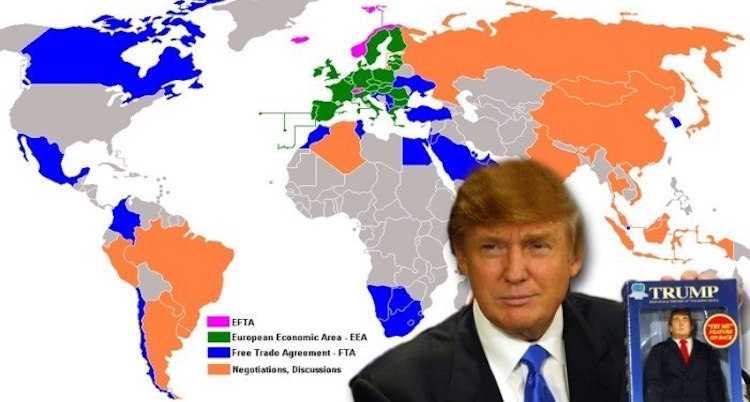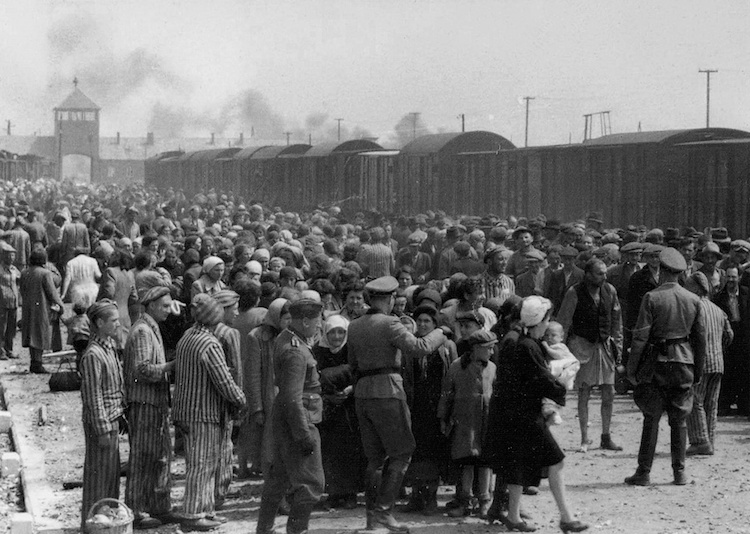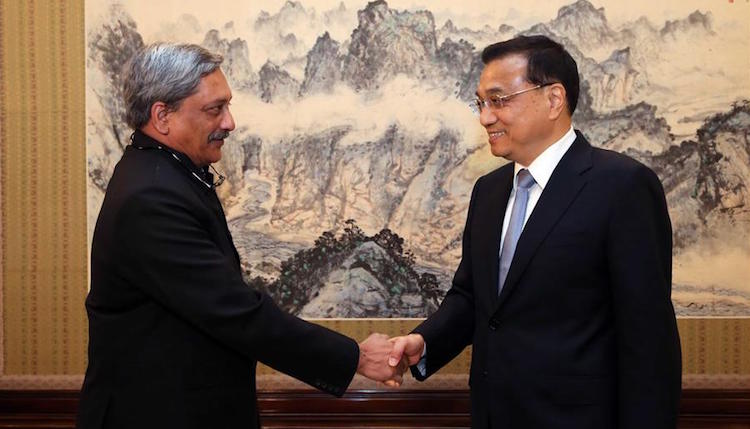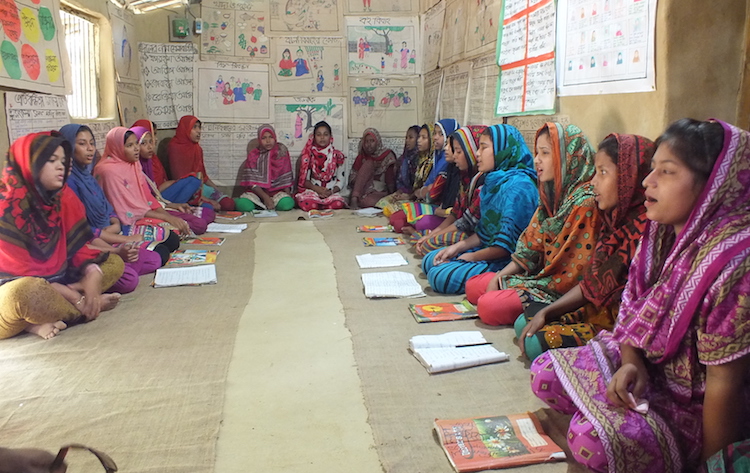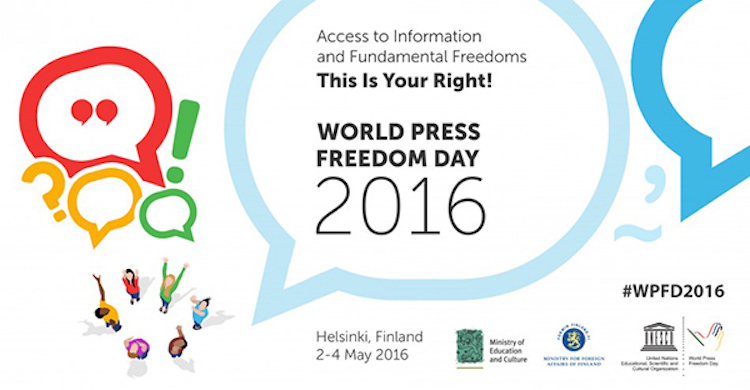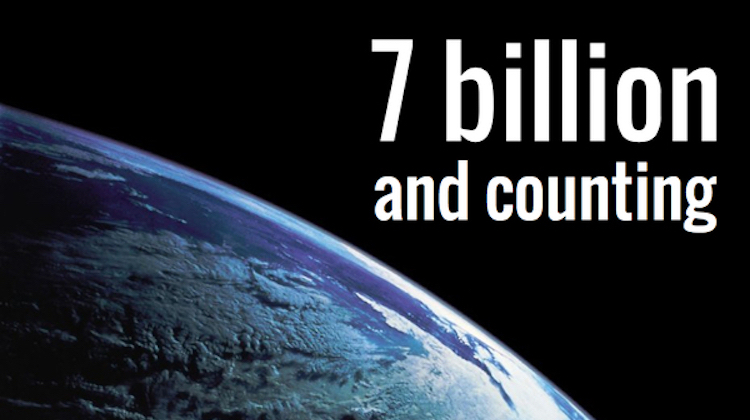United Nations Secretary-General Ban Ki-moon video message on the occasion of World Press Freedom Day 2016.Theme: 2016 Theme: Access to Information and Fundamental Freedoms – This Is Your Right!
United Nations: Secretary-General Ban Ki-Moon
Ban Ki-moon, was elected as Secretary-General of the United Nations in October 2006. In this video he speaks about growing up in Korea when the UN helped his family escape the horrors of war, his role as Secretary-General, and his hope for the future.
Growing Doubts About ‘Free Trade’ in the United States
Analysis by Martin Khor*
GENEVA (IDN | SOUTHVIEWS) – “Free trade” seems to be in deep trouble in the United States, with serious implications for the rest of the world. Opposition to free trade or trade agreements emerged as a big theme among the leading American presidential candidates.
Donald Trump attacked cheap imports especially from China and threatened to raise tariffs. Hillary Clinton criticised the Trans-Pacific Partnership Agreement (TPPA) which she once championed, and Bernie Sanders’ opposition to free trade agreements (FTAs) helped him win in many states before the New York primary.
That trade became such a hot topic in the campaigns reflects a strong anti-free trade sentiment on the ground. Almost six million jobs were lost in the U.S. manufacturing sector from 1999 to 2011.
Wages have remained stagnant while the incomes of the top one per cent of Americans have shot up. Rightly or wrongly, many Americans blame these problems on U.S. trade policy and FTAs.
The Little-Known Dimension to the Holocaust
Viewpoint by Jonathan Power
LUND, Sweden (IDN-INPS) – May 4 is Israel’s Holocaust Remembrance Day. The Holocaust was committed by a nation whose church attendance was then high and whose creation of the most sublime sacred music ever written was etched deep into the minds of most people. Yet only the rare Catholic bishop and Protestant pastor spoke out against Hitler.
Today Germans admit the guilt of their nation. School children are taught every detail of the Holcaust’s evil- not least about Adolf Eichmann, the personification of Nazi extermination policy.
At the end of World War II, Adolf Eichmann, the chief organiser of the eradication of the Jews in the concentration camps went into hiding. Later he got himself, with the aid of sympathetic clergy, to Argentina.
For the next 10 years he worked in several odd jobs in the Buenos Aires area – from factory foreman, to junior water engineer and professional rabbit farmer.
Art Exhibition Highlights Regional Bank’s Commitment to ‘Lighting Africa’
By Ronald Joshua
JOHANNESBURG | ABIDJAN (IDN) – When Akinwumi Adesina took over as the President of the African Development Bank in September 2015, he made no secret that lighting up and powering Africa would be one of his five priorities – one of the ‘High 5s’.
“Without electricity there is no future, no growth, no progress,” he said opening the exhibition, titled Lumières d’Afriques (‘African Lights’) on April 26 at the Donwahi Foundation for Contemporary Art in Abidjan, Côte d’Ivoire, under the auspices of the African Development Bank (AfDB) and the African Artists for Development (AAD) Fund.
The exhibition, which is the world’s first in several respects, will run through June 6 before going to Dakar, London, Washington, among other places. It comprises 54 works created by 54 world-renowned contemporary African artists, one for each of the 54 countries that make up the continent, united around the same source of inspiration: The illuminated Africa.
India Sends Mixed Messages to Beijing and Washington
Analysis by Shastri Ramachandaran*
BEIJING (IDN) – If New Delhi’s intention is to keep Beijing and Washington guessing as to who it favours, then the mixed signals during recent high-level exchanges with both are right on point. Neither Washington nor Beijing can, at a given stage or on a specific issue, say with any certainty which way New Delhi may swing.
The matter of mixed signals is best illustrated by developments surrounding the second visit of U.S. Defense Secretary Ashton Carter to New Delhi; the three-high-level official exchanges between India and China – two in Beijing and one in Moscow; and, the wholly avoidable flip-flop in first granting and then revoking the visa to Dolkun Isa, whom Beijing says is a terrorist leader.
Earlier in April, India’s Defence Minister Manohar Parrikar was in China on a five-day visit. Parrikar’s visit was not only a high-level one, but the first by a defence minister in the National Democratic Alliance government of Prime Minister Narendra Modi. He was received at a high level and had meetings with his Chinese counterpart General Chang Wanquan of the People’s Liberation Army and top defence officials.
Adolescent Girls in Bangladesh Defend Right to Learning
News Feature by Naimul Haq
COX’S BAZAR | Bangladesh (IDN) – Many young girls drop out from schools in Bangladesh largely due to poverty and poverty related causes. But strong motivations for continuing education have changed the scenario over the past few years.
Despite the practices of patriarchy and traditional beliefs against girls’ education and employment in mostly poor families in the rural areas, adolescent girls in many regions of Bangladesh have demonstrated how defying such traditions can actually benefit their lives.
Shonglap – or dialogue that calls for capacity building or developing occupational skills and offers livelihood opportunities for marginalised groups of people in the society – has made a positive impact encouraging them to learn.
Ummey Salma, who quit school in 2011 due to extreme poverty, has joined Shonglap in South Delpara of Khurushkul in coastal Cox’s Bazar district. In a group of 29 adolescent girls, Ummey, who lost her father in 2009, has been playing a leading role among the girls who meet six-days a week in the Shonglap session held at a rented thatched home in suburb Delpara.
UN Study Pleads for Inclusive Instead of Export-led Development
Analysis by Devinder Kumar
NEW DELHI (IDN) – Continued exclusive reliance on export-led development is “futile”, says the United Nations Economic and Social Commission for Asia and the Pacific (ESCAP) in its flagship publication Economic and Social Survey for Asia and the Pacific 2016 launched on April 28 in Bangkok.
“Prospects of an export-led recovery in developing Asia-Pacific economies remain broadly subdued due to the weak economic outlook for the European Union and Japan alongside the somewhat better growth performance that is expected in the United States,” explains the study.
For many exporting economies in the region, particularly commodity-dependent economies, this challenge is compounded by moderating growth of the Chinese economy, which has been partly driven by much-needed rebalancing to sustain growth in the medium term, adds the report.
Little to Rejoice on World Press Freedom Day
Analysis by J Suresh
TORONTO (IDN) – In run-up to World Press Freedom Day on May 3, a new report has come up with a shocking revelation that global press freedom declined to its lowest point in 12 years in 2015, “as political, criminal, and terrorist forces sought to co-opt or silence the media in their broader struggle for power”.
An important exception to this trend, according to Freedom of the Press 2016, Freedom House’s annual report on media freedom worldwide, was Sri Lanka, which experienced a marked improvement in press freedom conditions after a new government took power in early 2015.
Freedom House is an independent watchdog organization that supports democratic change, monitors the status of freedom around the world, and advocates for democracy and human rights.
The report reveals another encouraging trend: Despite the many threats to press freedom, journalists and bloggers worldwide have shown resilience, often at great risk to their lives.
Brazilian Social Scientist, Polish NGO Bag UN Population Award
By J Nastranis
NEW YORK (IDN) – A Brazilian social scientist and a Polish organization have bagged the 2016 United Nations Population Award. Established by the UN General Assembly in 1981, the award recognizes outstanding achievement in the fields of population and health.
Dr Carmen Barroso, a Brazilian social scientist has won the award for her long commitment to population causes. The ‘Childbirth in Dignity Foundation’, a Polish organization is being honoured for promoting improved quality of care for Polish mothers and new-borns.
The award is scheduled to be presented at the United Nations on June 23.
Dr Barroso’s contributions to population questions and their solutions had a great impact through her leadership of major organizations, according to documents submitted to the Population Award Committee. In Brazil, she was a pioneer in gender studies while working at the Chagas Foundation and teaching at the University of Sao Paulo.

